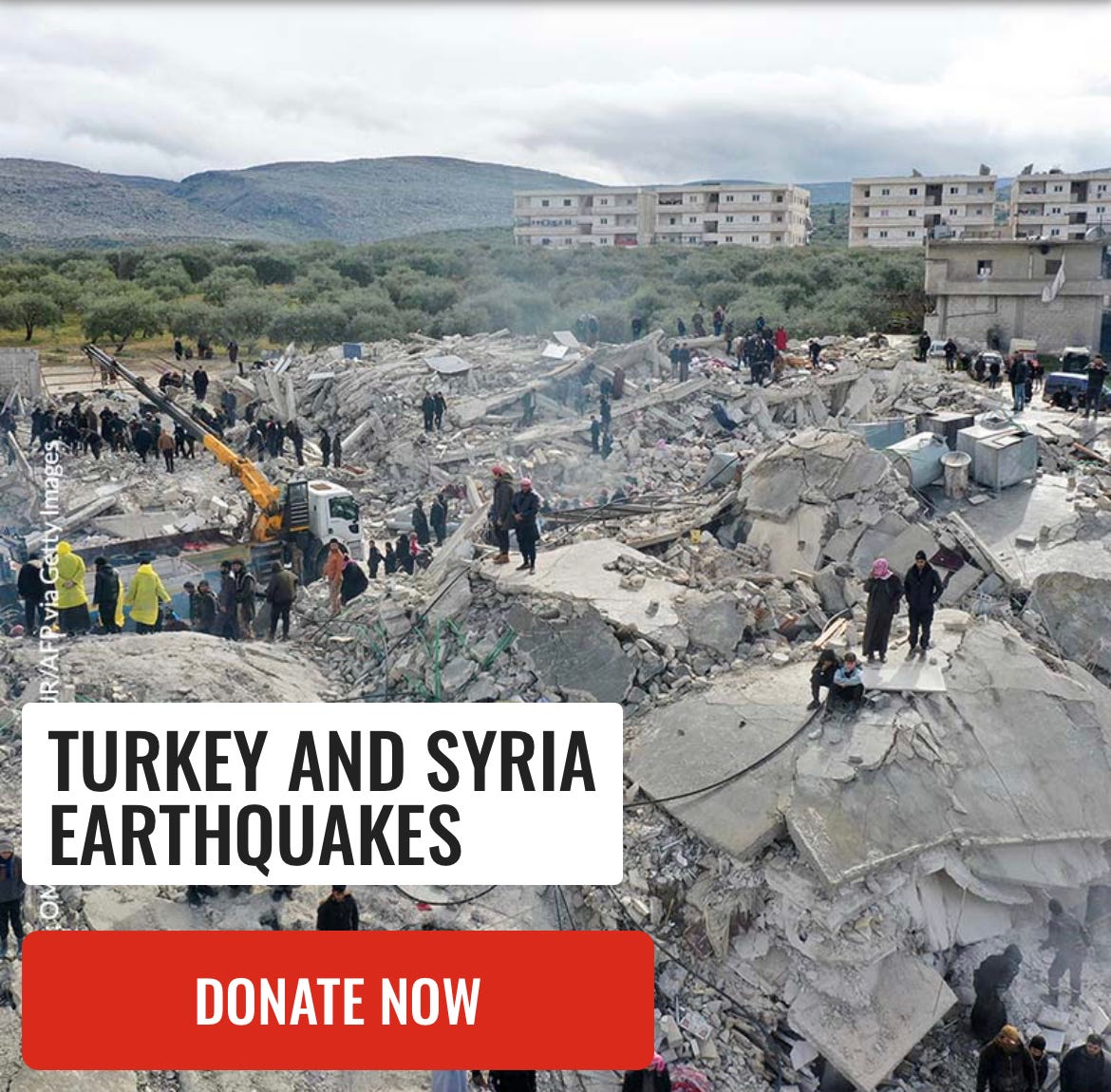Image: Save the Children. Donate Here
It’s difficult to grapple with the scale and magnitude of the devastating earthquake which struck southern Turkey and northern Syria last week. At least 30,000 have been confirmed dead, a figure which almost certainly massively undercounts the real human toll among highly vulnerable communities already deeply traumatized by long years of war. The suffering of rebel-controlled northwestern Syria is particularly troubling, as the Syrian regime allowed virtually no aid to enter during the critical first week despite the urgent need (see Sara Kayyali’s short essay here and Reva Dinghra’s piece here; hopefully the reports that Asad has allowed the opening of two crossing points to aid - a week too late - will prove accurate and provide some relief). Political scientists will have much to say about the political foundations of this natural disaster, from the bitter legacies of Syria’s war and Asad’s efforts to extract political gains from the rubble to the shoddy construction authorized by Turkish President Recep Tayyib Erdoğan’s government and his politicized distribution of relief efforts.
The world’s attention will move on, but the earthquake’s effects will haunt these communities for years to come, including our colleagues and students from those areas and those who have studied them for years. But for now, the urgency lies in mobilizing aid and relief efforts (my donations went to Save the Children but see below for other options). Earlier today, the MENA Politics Section of the American Political Science Association (which I chaired for three years, from 2018-21, but for which I am no longer formally a member of the leadership; the current chair is Stacey Philbrick Yadav) issued a statement organized by a number of section members. I reproduce that statement here in hopes that it reaches as much of our research community as possible. Any inquiries, particularly about reliable local aid organizations and NGOs, can be directed to any of these Section members: Gamze Çavdar (Gamze.Cavdar@colostate.edu), Şebnem Gümüşçü (sgumuscu@middlebury.edu), Sultan Tepe (sultant@uic.edu), Bengi Gümrükçü (bengigumrukcu@gmail.com), Rana Khoury (rbkhoury@gmail.com), and/or Lisel Hintz (lhintz1@jhu.edu).
APSA-MENA POLITICS SECTION STATEMENT REGARDING EARTHQUAKE
IN TURKEY AND SYRIA
As a research community committed to and grounded in the MENA region, we are deeply saddened by the devastating impact of the earthquakes in Turkey and Syria. This disaster has left tens of thousands dead and millions homeless, under conditions exacerbated by freezing temperatures, insufficient funds, and years of conflict. We express our deepest condolences and share in the grief of those affected by this calamity.
We urge institutions of higher education to recognize not only the magnitude of the devastation but the urgency of supporting those in our professional and community networks who are struggling to comprehend the scope of the disaster, worrying about, and desperately trying to reach their loved ones. It is critical that we express solidarity with the students, staff, and faculty from the region and look for ways to act on this basis.
Recognizing that it can be difficult to know where to begin, we provide a list of some organizations that are currently providing humanitarian assistance to survivors in affected communities. These international organizations are well-ranked in Charity Navigator and Charity Watch.
The International Federation of Red Cross and Red Crescent Societies
UN World Food Program
Syrian American Medical Society
CARE
UNICEF
For people who prefer to give to local organizations, we recognize that the organizational landscape is complex and recommend that you contact those working in and on the region who have local expertise. Many members of the APSA MENA Politics section are actively circulating the names of local NGOs providing frontline relief in both Turkey and Syria. As a start, we refer people to follow @femmemena, @LiselHintz, @rbkhoury, @SBGumrukcu, and/or @se_parkinson.




